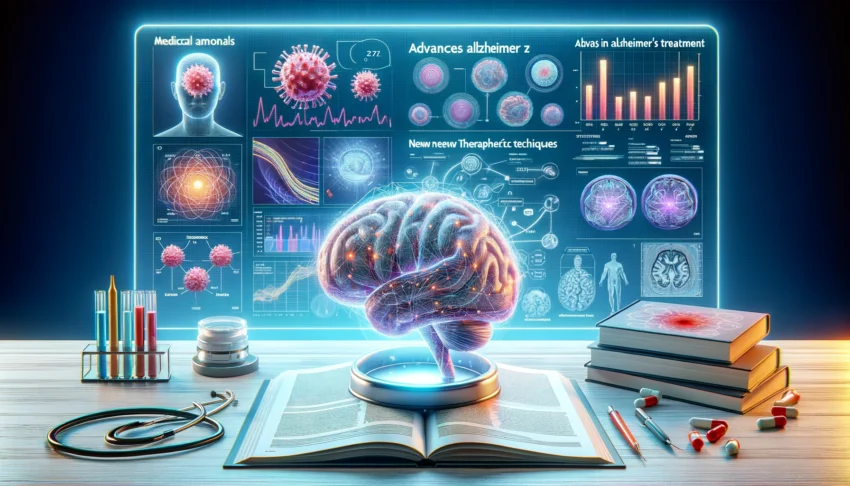Introduction
Alzheimer’s disease is a progressive neurological disorder that leads to the degeneration and death of brain cells, resulting in severe cognitive decline and memory loss. It is the most common cause of dementia among older adults and represents a significant challenge not only for patients but also for caregivers and healthcare systems. This article, crafted by Dr. Matthew, MD, delves deep into the causes, symptoms, treatment options, life implications, ongoing research, and emerging therapies for Alzheimer’s disease.
Causes of Alzheimer’s Disease
The exact causes of Alzheimer’s disease are not fully understood, but the condition is believed to result from a combination of genetic, lifestyle, and environmental factors that affect the brain over time. Key factors include:
- Genetics: Certain genes are known to increase the risk of developing Alzheimer’s.
- Age: The greatest known risk factor is increasing age, with most people with Alzheimer’s being 65 and older.
- Family History: Those with a parent or sibling with Alzheimer’s are more likely to develop the disease.
- Other Factors: Cardiovascular health, education, diet, and overall brain health throughout life.
Symptoms of Alzheimer’s Disease
Symptoms of Alzheimer’s develop slowly and worsen over time, becoming severe enough to interfere with daily tasks. They include:
- Memory loss
- Difficulty planning or solving problems
- Difficulty completing familiar tasks
- Confusion with time or place
- Trouble understanding visual images and spatial relationships
- New problems with words in speaking or writing
- Misplacing things and losing the ability to retrace steps
- Decreased or poor judgment
- Withdrawal from work or social activities
- Changes in mood and personality
Diagnosis of Alzheimer’s Disease
Diagnosis involves careful medical evaluation, including a thorough medical history, neurological assessments, mental status tests, and physical and diagnostic tests. Brain imaging technologies such as magnetic resonance imaging (MRI) or computed tomography (CT) scans can be used to rule out other conditions that may cause symptoms similar to Alzheimer’s disease.
Treatment and Management
While there is no cure for Alzheimer’s disease, several treatments can help manage symptoms. These include:
- Medications: Cholinesterase inhibitors and memantine can help manage symptoms related to memory, communication, and reasoning.
- Psychological interventions: Cognitive stimulation therapies, counseling, and activities tailored to personal interests and abilities, which can help reduce some symptoms.
- Support for caregivers: Education, respite care, and support groups can help caregivers.
Living with Alzheimer’s Disease
Living with Alzheimer’s means adapting to a life of gradual decline and increased dependency. Planning for the future, establishing support networks, and maintaining a healthy lifestyle with regular physical activity and social interaction can help improve quality of life.
Ongoing Research and Emerging Treatments
Research into Alzheimer’s disease is robust and ongoing. Current research avenues include:
- Beta-amyloid targeting treatments: New drugs aim to reduce beta-amyloid plaques, a characteristic of Alzheimer’s brain pathology.
- Tau protein inhibitors: Drugs to inhibit tau protein tangles, another hallmark of the disease, are being tested.
- Neuroprotective strategies: Efforts to protect the brain’s nerve cells against the disease’s effects.
- Lifestyle interventions: Investigating the impacts of diet, exercise, and cognitive training on disease progression.
Conclusion
Alzheimer’s disease remains a challenging and heart-wrenching condition with a significant impact on society. Advances in understanding the disease’s mechanisms, along with improvements in diagnosing and treating it, offer hope that future generations may see a decline in its prevalence or even a cure. For those dealing with the disease today, comprehensive care approaches and ongoing research provide paths to better management and potentially more effective treatments.
Note:
For individuals and families dealing with Alzheimer’s, accessing reliable resources, and connecting with knowledgeable healthcare providers are crucial steps. Always consult healthcare professionals for guidance tailored to specific health needs and conditions.

